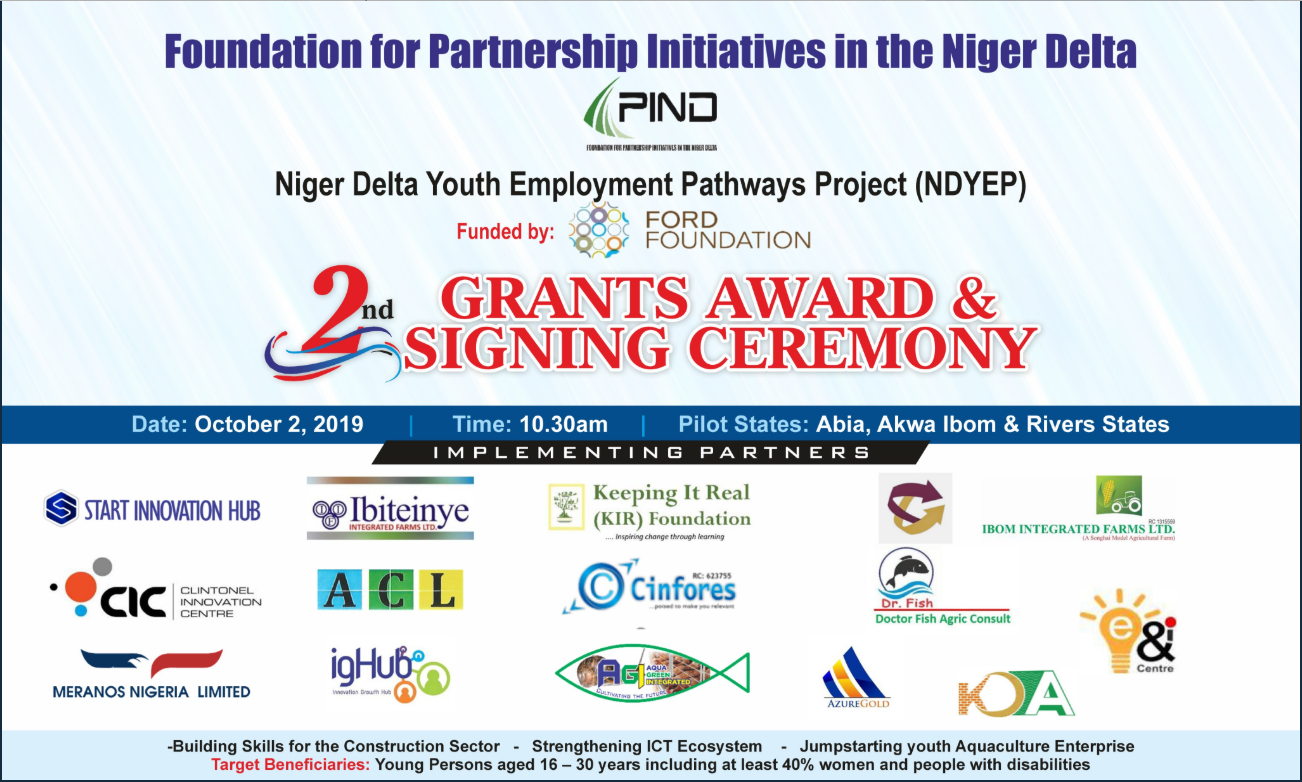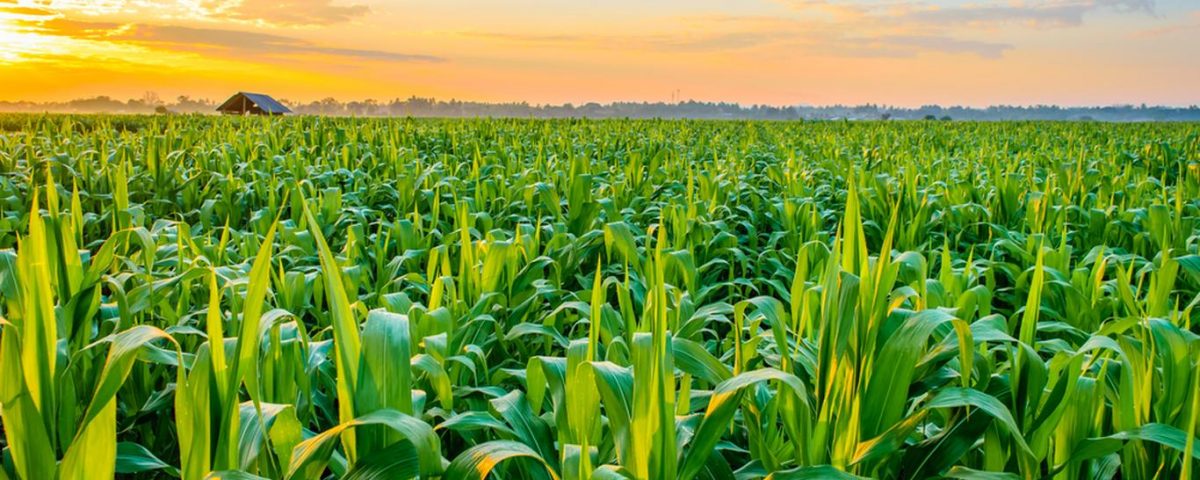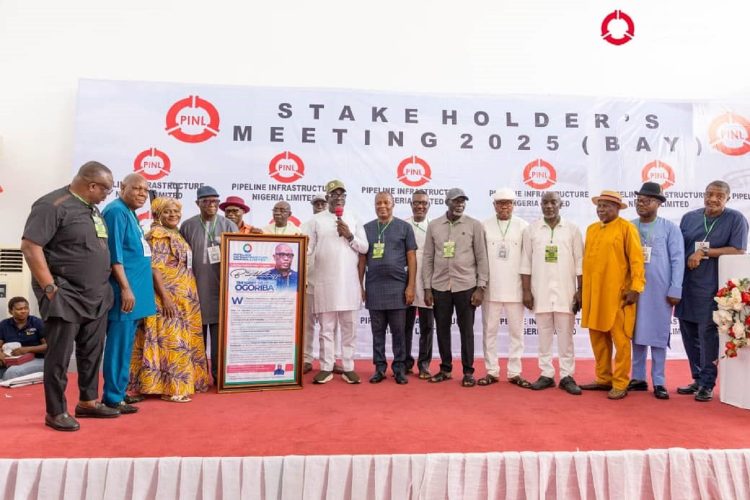
PIND is Tackling Instability and Conflict Through Youth Employment Trainings
October 2, 2019
Startup Port Harcourt Week 2019 Holds this Month
October 7, 2019
Nigeria as a country is still heavily dependent on crude oil exports for income. Income used for debt servicing, infrastructural development and other capital and recurrent expenditure. However, the recent sharp decline in crude prices is forcing us to take a second look at the agricultural sector which was the bedrock of our economy before the ‘60s. In a manner of speaking, it still is the bedrock of our economy, as it employs over 70% of Nigeria’s teeming population while contributing over 24% of our GDP in 2018.
Agriculture is a natural fall back for Nigeria as we have an uncommon endowment in that area. Nigeria has over 84 million hectares of arable land, only about 35 million are currently being cultivated seasonally with about 1% irrigated. We also so have a variety of soil types and weather conditions to suit divergent crops in different parts of the country and an abundance of labor. The National Bureau of Statistics in 2018 estimates 65% of our population to be young people between ages 15 – 45.
How Big is Agriculture?: The agricultural industry offers an interesting opportunity for economic growth in Nigeria. Significant gaps exist in both food production and value addition. From crop cultivation to livestock and aquaculture, we have a massive deficit in both the quantity and the quality of produce we churn out yearly. For example, Nigeria still imports more than 60% of the rice consumed yearly which amounts to over 3 million metric tons, making the provision of rice a 1 trillion naira industry. It’s a similar story with tomatoes; we still import over 1 million tons of paste yearly (FAO, 2018).
The Nigerian population is growing at 3.2% per year and is projected by the UN to be 402 million by 2050. This will make us the 3rd largest population in the world. The current cost of feeding the country is estimated modestly at N10 billion daily, not considering food wastage and other factors. By 2030 it could be N20 billion daily, making the Nigerian food industry a $20 billion industry yearly.
We still have quality, processing, and packaging gaps when it comes to vegetables and other fresh foods including beef, poultry, dairy, and seafood. We continue to import these, year after year. There are a few pioneers like Fresh Veggies Plus from Jos and The Fish Shop in Lagos, providing consumers farm-fresh foods with a high degree of traceability, but that remains a far cry from the level of availability that could be considered optimal.
The US, China, and Europe are big buyers of ginger, cashew, cocoa, oil palm, nuts, and cassava- of which Nigeria remains the largest producer and consumer worldwide. While fraught with challenges of standardization, logistics, stringent foreign policies, and our inefficient customs, thousands of Nigerian exporters are rising up to these challenges in order to access the massive foreign exchange market in export. The sheer size of this untapped $600 million-a-year market makes it an open playing field for serious producers. According to the Nigerian customs service, Agricultural exports have grown by over 500% since 2016. The FAO has estimated that due to declining productivity, Nigeria loses $10bn annually in export opportunities for major crops including cocoa, cotton, palm oil and groundnut.
What Drives Growth in the Industry: As we look inwards towards agriculture, there are some key factors that are driving growth and development in the sector. One major factor is Private Investments in Agriculture. Thousands of professionals in Nigeria and in the diaspora are looking to farming as a stable, lucrative retirement plan. Others see it as a secondary means of income or as a way to secure their landed assets. So they have begun to invest in agriculture in ways that have been unprecedented in Nigerian white-collar class. Youth unemployment has also driven many graduate entrepreneurs to start small to medium scale farms or go into processing, packaging and other unique parts of the value chain, bringing fresh perspective and innovation to play.
The Government has also played a part in the Agricultural revival, creating various training and financing programs to empower farmers and to make them more effective in carrying out their operations. Prominent among these is the CBN’s Anchor Borrowers Scheme (ABS), where many smallholder farmers are linked with an anchor in a cooperative. The anchor acts as a financial and marketing conduit for the farmers. It is especially effective because the Anchor has the obligation to off-take or purchase all of the produce from the farms under prearranged terms after providing the farmers with specific imputes needed to grow the crops in the quantity and standard required. This process is handled by the Bank of Agriculture. With Agri-Business/Small and Medium Enterprises Investment Scheme (AGSMEIS), the federal government through the CBN brings the commercial/retail banks into the game by allowing farmers and other SMEs access single-digit-interest loans of up to N10 million through them. This loan allows capable farms to expand and develop over a maximum period of 7 years before they have to completely payback.
PIND to Revive the Oil Palm Business
PBR Cowpea could generate N48 billion for Nigeria
Technology is another big factor in the development and growth of Agriculture in Nigeria. With web technology start-ups like Farmcrowdy, Farmsby, ThriveAgric, and others are pooling finances from all over the world to assist farmers and return a profit to investors. Companies like Alibaba and others are enabling farmers, access semi-automated farming equipment that before now, were not within reach. Implements like mini-ridges, handheld harvesters, fertilizer applicators; mini processing plants have brought unprecedented efficiency to farms around the country. This reduces the amount of labor required per hectare, and farmers are able to cultivate more land in a more efficient manner. Drone technology is another hot buzz in the sector. Big Drone, a Nigerian Start-Up, uses drones and satellite imagery and Artificial Intelligence to survey large farms, even spotting diseased crops. This allows farms to do spot application of chemicals, reducing wastage and preventing loses with less cost and labor.
An outstanding display of the power of technology lies in Nigeria’s burgeoning online payments system, powered by the NIBSS. This has allowed millions of transactions to be carried out instantly without the encumbrance of cash. Even rural farmers can be paid through their accounts or phone numbers allowing considerably higher transaction success rates but at the markets and farm gate.
Foreign Exploits
The Netherlands is the world’s second-largest exporter of agricultural products, after the USA. Netherlands agricultural exports reached a whopping 92 Billion euros in 2017 with just a little over 1 million hectares of arable land. It supplies a quarter of the vegetables that are exported from Europe. The Dutch agricultural sector is diverse; it covers a wide range of livestock and plant-cultivation sectors that include, for example, arable and dairy farming, cultivation under glass, tree-growing and pig farming. For decades, Dutch agriculture has succeeded in maintaining its lead over international competitors by continually investing in the renewal of agricultural production chains. Farmers and growers are full partners in the agricultural production chain. Their primary task is to produce food, flowers, and plants with an optimum price/quality ratio using innovative, socially responsible and sustainable methods.
Growers are also constantly finding new ways to mechanize their farms. A large tomato grower in the Netherlands invested $1.5 million in an Israeli start-up, Metomotion, producing a robot that harvests and packages tomatoes in greenhouses using 3-d imaging to identify ripe fruits.
Israel’s geography is not naturally conducive for agriculture, with deserts taking up more than half of its land area, while its climate and lack of rainfall and water resources were also unfavorable. Israel has made steady progress in its farming and harvesting output and efficiency. The area of irrigated farmland available has also increased significantly from 74 thousand acres in 1948 to around 460 thousand acres today. Using the latest advancements in technology, Israel’s agricultural production rose around 26% (1999 to 2009). They have been able to use 12% less water to grow around 26% more crops and output. This increased output with reduced input is only possible due to the advancements made in agricultural technology such as the development in vermiculite (a type of soil conditioner) new types of seeds, and new types of plants. While farmworkers made up only 3.7% of the workforce, Israel produced 95% of its own food requirements. (Evidence is the average yield per hectare of maize of 30 tons, the highest in the world in stark contrast Nigeria’s 2.3 tons per hectare).
What do we have to overcome?
Observing the strides made by other countries in the field of agriculture can be daunting for those whose task it is to fill the gaps. Nigeria still has many challenges to overcome in order to re-emerge as a force in Agriculture.
Subsistence Agriculture is a huge problem, stemming from a combination of our tedious land tenure system, deepening poverty crisis and lack of access to finance for the majority of farmers. Many Agricultural economic experts have recommended cooperatives for the farmers, where they can share resources, produce more and gain better access to resources from the government or private institutions or international bodies.
Moving goods from one place to another within the country is tedious, often causing wastage on a massive scale yearly. Adding to this is the lack of standards in the markets where commodities are sold in a myriad, amorphous packaging, from bags to baskets of different sizes. This open system often beclouds facts about the actual quantities of products being sold, making it easier for middlemen to control the markets. It is quite important for the Government to ensure that goods are sold by weight, using the metric system that’s popular in the country. Food production standards are also none existent, causing a huge traceability gap. Few Nigerians have any idea where 98% of their food comes from. This is an anathema to the global market and holds us back from being a reliable export giant.
Government receipts from Agriculture in terms of foreign exchange and internal revenue is a net negative, little wonder why the sector was allocated only 2% of the total Government budget in 2017. According to GT Bank annual report of 2018, only 1% of corporate lending went to the Agricultural Sector, less than lending to individuals. Many grants and empowerment schemes are channeled towards the sector, albeit in haphazard ways, without persistent commitment to the development of the sector in terms of major infrastructure like farm settlements, roads, cold and dry storage facilities, transport systems, electricity and so forth. These components are essential for the kind of growth visualized and projected by the government. Many of the policies are directed at individual farmers and not at revamping the sector as a whole. Another big problem is the lack of research finance, which is the lifeblood of development in any sector and ineffective extension systems that would otherwise assist farmers to produce more effectively.
In summary, Agriculture in Nigeria is a goldmine that is yet untapped. It is still the most vital part of our economy. Depending on how long it takes for factors like financing, technology, Government policies, and programs come together in a coordinated manner, we may be able to surmount some of the challenges we have in the sector. The agricultural industry in Nigeria has the potential to rake in billions of dollars for individuals, businesses and the government yearly. It is exciting to imagine the possibilities.
About the Author
Kalabor Aquila– is a Nigerian ICT expert in Software Development, the CEO of Aqqute Labs Limited- a software company that provides B2C solutions in the Nigerian Fintech market, including Aqqute pay, an escrow platform, and Aqqute Open source, an AI learning and implementation community for Africans. He is also a farmer, and CEO of Green Cycle Ventures Limited- an Agricultural company focused on the production of vegetables using climate-friendly technology. He holds a Bachelor of Technology in Financial Management Technology and has a wide experience in working with various institutes within and around Nigeria. He is an alumnus of YALI RLC Accra, and a winner of the 2017 USADF YES Business Plan competition and a participant in the 2018 Citibank YES Entrepreneurship Summit, Nairobi, Kenya. He is also a participant in many ICT and Agriculture programs. He has experience in Finance and Management in various industries including Government, Oil, and Gas, and Non-profits and will be instrumental in consolidating the desired goals of the challenge. You can find him on Twitter @aquilakalagbor
Disclaimer: The opinions expressed in this article are those of the author not of NDLink









